INTERVIEW: FIRE & DUST MEETS CHARLOTTE FAULCONBRIDGE
In the prism of my mind,
souls refract,
splintering these walls with photons,
chasing one another in flight.
Shards of starlight dancing across our skin
like a million moths akin to embers,
feasting alive.
I inhale your scent,
as if being squeezed of breath,
we collapse onto a moon kissed bed spread
and gaze at our cross section of the Universe.
I see not physics,
nor angles
nor equations,
only a spectrum.
For us ‘outside the box’ thinkers
never saw a box to begin with.
___________________________–’Prism’
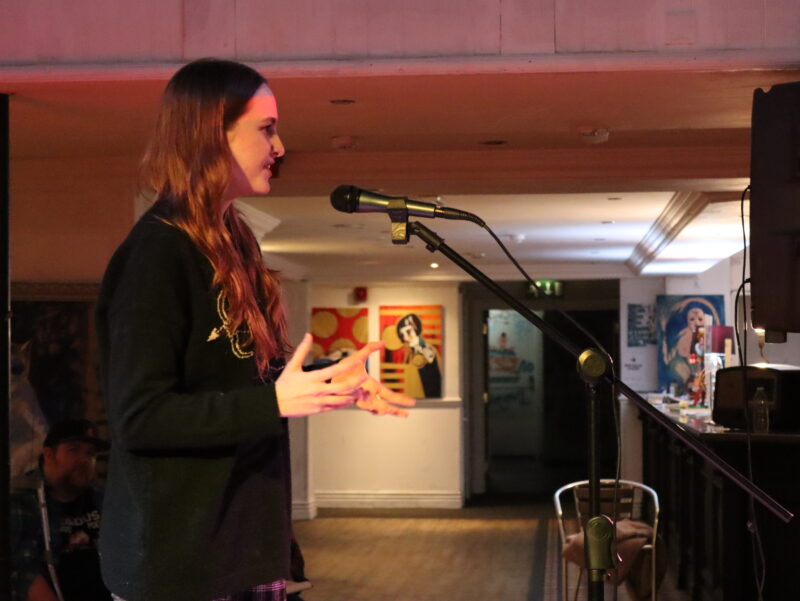
Charlotte Faulconbridge is an autistic and chronically ill prize-winning poet, published author, musician and TEDx performer. Her book Too High to Function, which tells the story of her life on the autistic spectrum, has sold in over 20 countries, on every continent, and reached number one in the Amazon bestseller charts. She became an ambassador for the mental health charity MIND in 2024 and was recently a finalist in the BBC Make A Difference Awards. The Warring Twenties (published with Jawbone in November 2024) is her debut poetry collection themed around mental health.
In December 2024, Charlotte was the guest headliner at Fire&Dust, our poetry open mic night in Coventry. We caught up with her after the gig, to ask a few questions…
HCE: Tell us a little about your background and journey as a writer so far. What inspired you to start creating and performing poetry?
CF: I discovered poetry by complete accident whilst coming to the end of the publishing process for my first book, Too High to Function. I’d always wanted to be part of a creative community but had struggled to integrate myself due to social anxiety. After attending my first open-mic I just couldn’t put my pen down. I knew then that poetry was for me, and even though the prospect of sharing my poems was daunting, the nervousness never once outweighed the rewards.
HCE: Who is your work aimed at – do you have an ideal audience in mind when you’re putting a poem together?
CF: This will sound so selfish of me, but I always put myself first when I write. Everything I do creatively stems from my internal monologue of – “What would 14-year-old Charlotte need to hear?” I’m fortunate that others can relate to my story, but also saddened that so many people can relate to it. This only makes it more important for people like myself to keep sharing their experiences, so others can take comfort in the fact that they’re not alone.
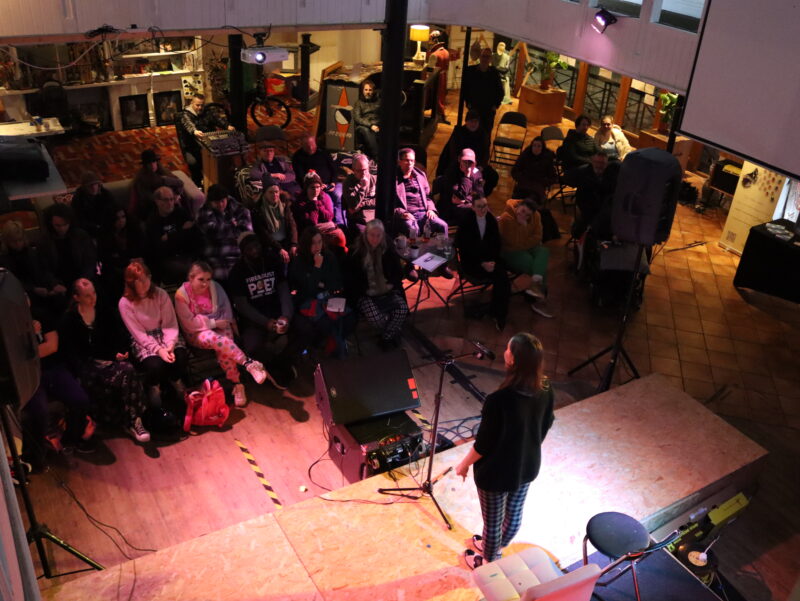
HCE: Would you say there are themes or motifs that you gravitate to in your work?
CF: I like to focus on disability and neurodivergence in my work as these are the topics I wish to raise awareness for the most. But when I’m not writing for advocacy, I love to indulge my inner astrophysicist and explore space and our universe on the page.
HCE: What have responses to The Warring Twenties been like? Are readers connecting with the material in ways you hoped they would?
CF: The response has been positively overwhelming! I always get anxious sharing my heart on the page as poetry is such an intimate act. So the fact that people not only relate to my words but enjoy my craft means everything, especially when performing my pieces live.
HCE: What is your favourite poem from this first collection, and why?
CF: Without a doubt my favourite poem from the collection, and one of my favourites I’ve ever written, is the poem “You Don’t Look Autistic”. If people wanted a piece to sum me up as a poet this would be it. I never get tired of performing it, and audiences never tire of hearing it, so it’s a win-win!
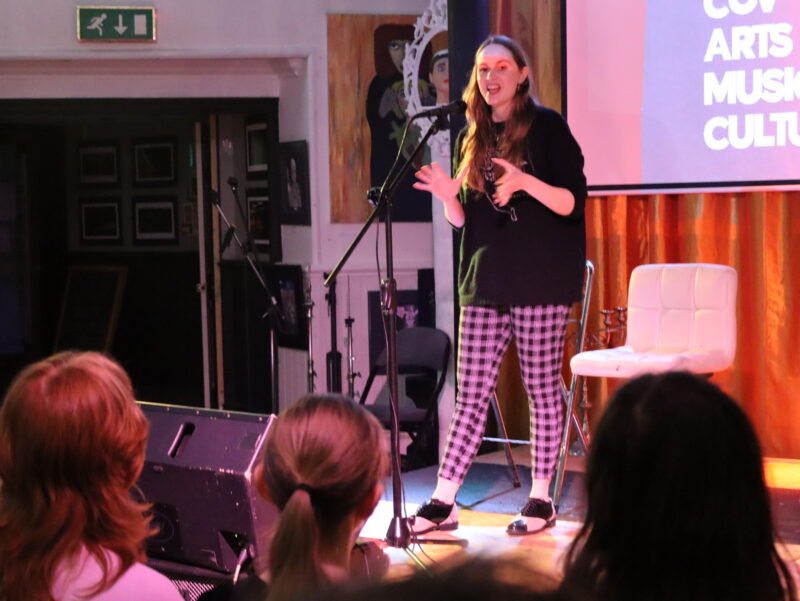
HCE: Is there a difference, in your opinion, between poems that are good candidates for ‘the stage’ and poems that work well ‘on the page’? Or do you not segregate your work this way?
CF: I do like to separate my work between stage and page pieces as I have varied writing styles that fit into more than one category. When I started poetry I found writing ‘for the page’ a more helpful way to ease myself into sharing my poems, as I was never confident with performing.
HCE: How did you find the experience of creating your poetry collection compared to writing Too High to Function? Would you say poetic habits are a help or a hindrance when it comes to writing non-fiction?
CF: I think because I started with non-fiction my poetic habits didn’t interfere, purely as I hadn’t discovered poetry yet! I don’t believe it would hinder my prose writing in the future though. I often wish I knew more about poetry before publishing my first book as poetry, in my opinion, makes you view the intricacies of our world completely differently.
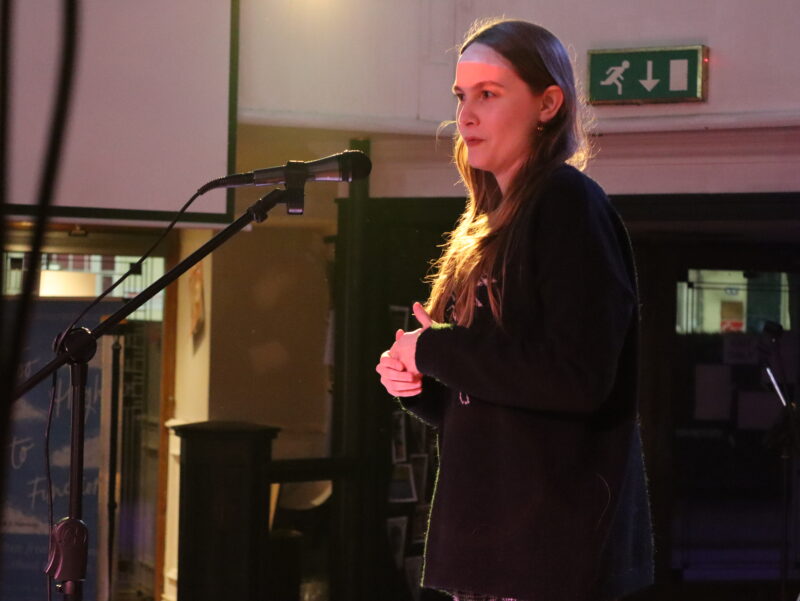
HCE: Some of your poems explore personal experiences in a raw and honest way – is this an emotionally draining thing to do? What is the top piece of advice you would give other poets for tackling heavy/personal topics in their writing?
CF: I don’t find it emotionally draining when I’m writing about experiences I have recovered from, but if I’m still processing a situation I can find it challenging to fully express myself. I would advise people to be kind to themselves, and not to force a topic that is still an open wound.
HCE: Who or what would you say are the biggest influences on your writing?
CF: I take a lot of inspiration from music as music was my first love. I love the similarities between music and poetry so I always play on these shared themes in my writing. As far as inspiration for content, I always feel so inspired when hearing other poets perform. This is why I love attending open-mics as an audience member as well as being asked to showcase my work as I learn so much from other people’s writing styles. Going to an open-mic is like attending the best poetry lesson you could possibly attend!
HCE: In your opinion, what more should arts communities be doing to support poets with autism and chronic illnesses, to make sure their voices are platformed and heard?
CF: When I first started writing I would’ve loved more in-print publishing opportunities to ease me into sharing my work. As someone with high levels of anxiety, going straight into performing was intense. So I wish that communities could promote other ways of sharing their writing, other than physical performances, to keep events even more accessible.
HCE: What would be your top piece of advice for writers who are struggling with low energy due to disabilities and health conditions – have you created a routine for yourself that helps reduce the risk of burnout?
CF: Due to my autism and chronic illness I experience burnout A LOT. If I’m performing or headlining an event I have to take the entire day off beforehand just to pace myself so I’m in less pain. I then have to plan a recovery period afterwards so I can fully rest before I continue my regular routine. Performing at an event flips my whole week around, but I love doing it so it’s always worth it.
HCE: What’s next on the horizon for you? Are you already working on a new collection/project or booked for upcoming performances?
CF: I am always working on new projects! My second collection is already in the works and I start recording my debut album this year. I am still enjoying touring with The Warring Twenties so keep an eye out for events happening near you.
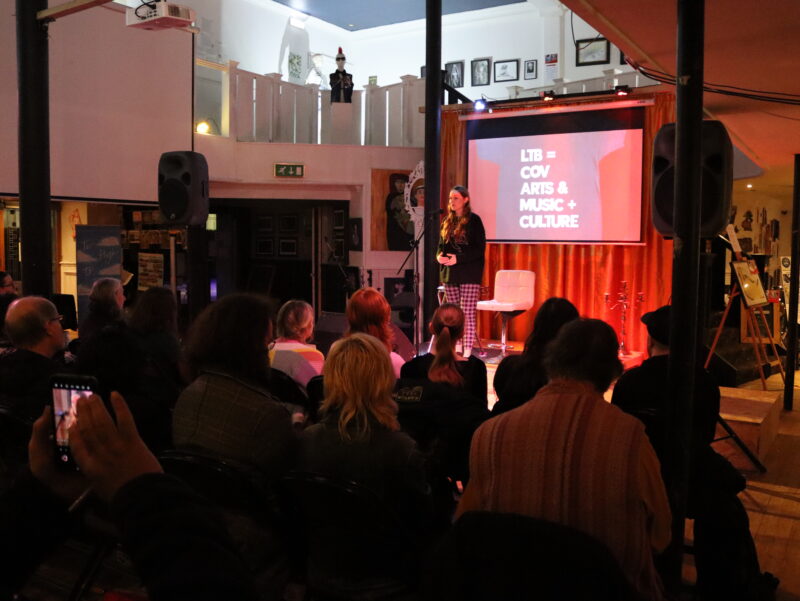
HCE: What’s the best way for people to keep connected with you and your work, or contact you for bookings?
I can be contacted best through my website, Inclusive Creatives, and on Instagram (@charlotterobynf).
The Warring Twenties and Too High to Function can both be purchased online via the Inclusive Creatives website.
